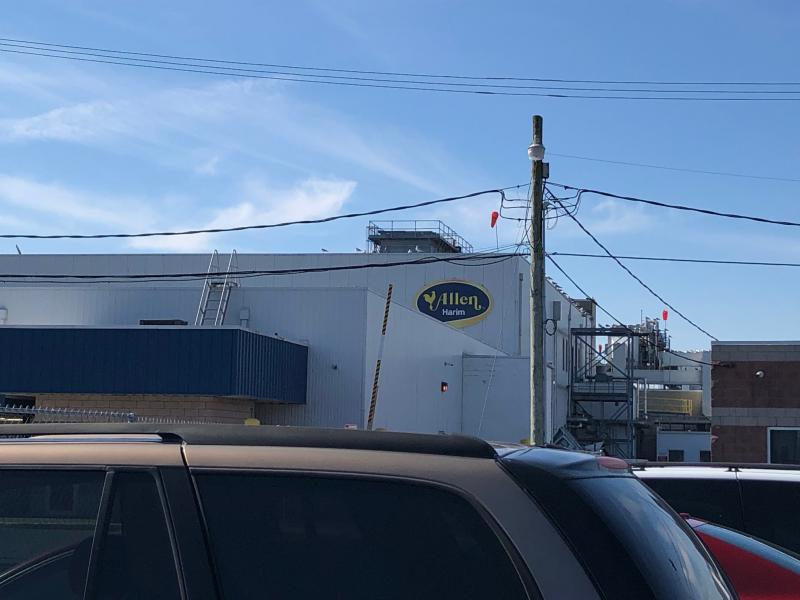With half of its employees not showing up to work at its plants, poultry processor Allen Harim has announced it is euthanizing 2 million chickens in flocks in Delaware and Maryland.
Allen Harim announced its plans in a letter to growers that was disseminated on Facebook. Signed by Director of Live Operations Michele Minton, the letter states when the company noticed the downward trend in attendance because of concerns about COVID-19, it reduced the number of eggs set and chicks placed. However, this reduction will not make an impact for another six weeks. Depopulation began April 10; Allen Harim contacted individual growers with further details.
Representatives from Allen Harim have not responded to a request for further comment.
Holly Porter, executive director for Delmarva Poultry Inc., an industry advocacy group, said with reduced staffing – Allen Harim reported attendance at 50 percent – many plants cannot harvest chickens at the pace they planned. She said more birds await to be harvested than plants have the capacity to harvest because of a reduced workforce.
“If no action was taken, the birds would outgrow the capacity of the chicken house to hold them,” Porter said.
She said when this happens, a company can make the choice to depopulate the birds in chicken houses, which she called a last-resort option. She said Allen Harim will euthanize nearly 2 million chickens on farms in Maryland and Delaware using the same methods approved to slaughter flocks because of avian flu.
Porter said Allen Harim is continuing to operate its processing plants and will compensate affected chicken growers for their contracted work in growing the chickens.
“Before taking this step, the company exhausted the study of other alternatives, including allowing another chicken company to transport and process the chickens, and taking a partially processed product to rendering facilities to utilize for other animal feed,” she said.
According to the U.S Department of Agriculture, farmers have two options for depopulating chickens in cases of avian disease: water-based foam for floor-raised birds and carbon dioxide gas for caged birds. These methods will typically depopulate a flock within 24 hours. USDA recommends five methods for disposal: composting, burial, incineration, rendering and landfilling. The method of disposal used depends on the size of the flock, space requirements, local conditions and costs.
So far, Allen Harim is the only one of Delmarva’s big five poultry producers - Mountaire Farms, Perdue, Tyson, Allen Harim and Amick Farms - to euthanize its flocks.
Diana Souder, spokeswoman for Perdue, said the company has had no problems with attendance at its plants and has no plans to euthanize flocks at this time.
Cathy Bassett, spokeswoman for Mountaire, said the company also has no plans to euthanize its chickens and has focused on safety measures for workers such as mandatory face masks and face shields at the company’s processing facilities, plexiglass barriers and social distancing on production lines, and additional cleaning of common areas. She said the company has instituted a sick pay program to encourage employees who are sick to stay home and has relaxed attendance policies.
Mountaire and Perdue have both acknowledged employees that tested positive for COVID-19, one for Mountaire and two for Perdue. Sussex County has had 1,317 positive tests for COVID-19, with a major hotspot around Georgetown stretching to Seaford and Millsboro as well as in Milford, all towns that have chicken plants.
Stacy Hofmann, spokeswoman for Delaware Department of Health and Human Services said, “We are not exactly sure why we are seeing a high number of cases in Sussex County. We know there are large numbers of people who live and work in close contact, but that situation occurs in the city of Wilmington, which doesn’t seem to have the same high rate of cases. It’s important that everyone act as if everyone, including themselves, has COVID-19, and take the necessary precautions not to spread it, including social distancing and wearing cloth face coverings when you can’t.”
Meanwhile, in light of news that Allen Harim was euthanizing chickens, the citizens group Save Delmarva Chickens was founded to save some of the chickens that will be killed. Believing there is a more humane way to deal with too many chickens, Save Delmarva Chickens is asking Allen Harim to hand over 10 chickens to animal sanctuaries willing to take them in.
Agustina Sosa, spokeswoman for the group, said, “We are actively working with local vegan sanctuaries to find permanent homes for the chickens. We found local placement for 10 chickens. More can be placed remotely, but we figured we would start locally with 10. As more and more sanctuaries agree to help, we can rescue more chickens.”
She said she has not received a response from the chicken companies, but the group is planning to pressure them to act, in part through an online petition, which has nearly 2,000 signatures.
“Saving one chicken's life makes a difference to that chicken, and to us,” Sosa said. “Whether we save one, 10, or 1 million chickens, all animals want to live. Their lives matter and are important to them. We also know that this action, and the rescue of 10 chickens from this issue, will raise awareness about the fact that this is happening unnecessarily and that it is inhumane.”
Ryan Mavity covers Milton and the court system. He is married to Rachel Swick Mavity and has two kids, Alex and Jane. Ryan started with the Cape Gazette all the way back in February 2007, previously covering the City of Rehoboth Beach. A native of Easton, Md. and graduate of Towson University, Ryan enjoys watching the Baltimore Ravens, Washington Capitals and Baltimore Orioles in his spare time.




















































